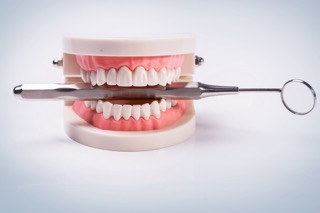Why Do Gums Bleed and How to Stop It?

Contents
- 1 Common Causes of Gum Bleeding
- 2 Bleeding Gums: When to Contact a Doctor
- 3 How to Stop Bleeding Gums: 9 Effective Tips
- 3.1 Tip 1. Brush Your Teeth 2-3 Times a Day
- 3.2 Tip 2. Use Dental Floss Regularly
- 3.3 Tip 3. Use Mouthwash
- 3.4 Tip 4. Use a Saline Solution to Stop Gum Bleeding
- 3.5 Tip 5. Change Your Toothbrush Every 3 Months
- 3.6 Tip 6. Use a Toothbrush with Soft Bristles
- 3.7 Tip 7. Give Up Harmful Habits
- 3.8 Tip 8. Use a Cold Compress
- 3.9 Tip 9. Consult Your Dentist for Professional Treatment
- 4 Bleeding Gums: the Most Common Questions

In May 2022, a study by Jong-Hwa Jang and Daisuke Ekuni, published on the National Library of Medicine website, surveyed people in Hong Kong, China, aged 25 to 60. They found that 62.2% of participants reported gum bleeding in the past year. This isn’t unusual—bleeding gums are a widespread issue. While it might seem like a minor problem that will go away on its own, bleeding gums can be an early warning sign of underlying oral health issues.
Bleeding gums are often the first indication that something’s wrong with your dental health. Here, the VIP Dental Care team explains why gum bleeding occurs, its potential risks, and how you can prevent or treat it early.
Common Causes of Gum Bleeding
Noticing blood while brushing your teeth? Here are some common reasons why this might be happening.
Gingivitis
Gingivitis often accompanies poor oral hygiene, dental plaque, tartar, and harmful bacteria. As these build up, gingivitis soon follows, bringing gum inflammation and bleeding. This condition occurs when plaque accumulates between the gums and teeth, weakening the gums’ defenses, leading to inflammation, damage, and eventually bleeding.
Periodontitis
If gingivitis goes untreated, the inflammation can spread deeper into the gums, leading to periodontitis. This serious gum disease causes not only bleeding but also the breakdown of gum tissue. As the gum tissue recedes, tooth roots become exposed. Treating periodontitis is a challenging, lengthy process, and, in severe cases, the damage may be irreversible. Preventive care is key to avoiding it.
Poor Oral Hygiene Habits
Why do gums bleed? Often, bleeding is linked to poor oral hygiene habits. Skipping essential hygiene practices can lead to gum irritation and bleeding. For example, smoking, excessive sugar intake, or neglecting to brush thoroughly or use dental floss and mouthwash can result in gum issues.
Hormonal Changes
During hormonal changes, such as puberty, pregnancy, or menopause, gums may be more prone to bleeding. Hormonal imbalances caused by certain medical conditions can have a similar effect.
Trauma and Injury
Gum bleeding may result from trauma or injury, even if there are no signs of infection. For example, using a toothbrush with stiff bristles or applying too much pressure while brushing can cause micro-injuries to the gums, leading to bleeding.
Dental Procedures and Treatments
If bleeding occurs around one tooth, it could be due to a recent dental procedure. Dental treatments often involve minor damage to the gums, which may lead to slight bleeding. This typically resolves within a few days post-procedure.
Bleeding Gums: When to Contact a Doctor
They say, “Once is an accident, twice is a coincidence, and the third time’s a pattern.” If you notice bleeding from your gums or around your teeth, don’t wait for it to become routine—schedule a consultation with your dentist as soon as possible. Ideally, if it happens repeatedly over several days or if you’ve noticed it consistently over a few weeks, it’s time to seek professional advice.
Here are some specific situations where you should promptly contact your dentist about gum bleeding:
- Bleeding caused by an injury to a specific tooth area or along the gumline
- Persistent gum bleeding for 14 days or more
- Bleeding that continues for over 48 hours following a dental procedure
How to Stop Bleeding Gums: 9 Effective Tips
Looking for ways to stop gum bleeding on your own? Here are some practical tips to try:
Tip 1. Brush Your Teeth 2-3 Times a Day
Consistent, thorough oral hygiene at home is essential for healthy teeth and gums. Make it a habit to brush every morning and evening – and ideally, after meals as well.
Tip 2. Use Dental Floss Regularly
Flossing between teeth and along the gumline is crucial. Just remember to be gentle and use soft dental floss to avoid harming your gums.
Tip 3. Use Mouthwash
Adding mouthwash to your routine completes the hygiene “superhero team” alongside your toothbrush and floss. Mouthwash helps reduce bacteria, inflammation, and bleeding.
Tip 4. Use a Saline Solution to Stop Gum Bleeding
Rinsing with saltwater can provide temporary relief for gum bleeding. Give it a try!
Tip 5. Change Your Toothbrush Every 3 Months
Dentists recommend replacing your toothbrush every three months. Even with regular cleaning, plaque and bacteria can linger on the bristles, affecting gum and tooth health over time.
Tip 6. Use a Toothbrush with Soft Bristles
A soft-bristled brush reduces gum trauma, promoting healthier gums and helping to prevent bleeding.
Tip 7. Give Up Harmful Habits
If you want to stop gum bleeding, consider a healthier lifestyle. Quit smoking, limit sugary foods, and manage stress. It’s challenging, but worth it for your health.
Tip 8. Use a Cold Compress
Applying a cold compress can temporarily reduce gum bleeding. However, this is a short-term solution. For a lasting fix, be sure to address the root cause.
Tip 9. Consult Your Dentist for Professional Treatment
Gum bleeding often has an underlying cause. If you’re wondering, “Why do my gums bleed?” a dental professional can help identify the reason and recommend an effective treatment plan.
In conclusion, gum bleeding and gum disease are common yet often overlooked issues. Even if discomfort is minimal, untreated gum problems can lead to more serious conditions, including tooth loss. Don’t let it progress – take steps now for better oral health.
Bleeding Gums: the Most Common Questions
Do Gums Bleed from Stress?
Yes, they can. Gum bleeding due to stress is usually a temporary condition.
Should I Brush a Bleeding Gum?
Yes, keep brushing — even around the bleeding area. The primary cause of gum bleeding is bacterial plaque. Use a soft-bristled toothbrush or apply gentle pressure to avoid further irritation. Rinsing with mouthwash can also help eliminate bacteria in the mouth.
Is It Normal for Gums to Bleed Every Day?
No, daily gum bleeding is not normal. If it continues for 14 days or more, it’s best to consult a dentist for proper evaluation and care.
Additional Resources
National library of Medicine – Self-Reported Gum Bleeding, Perception, Knowledge, and Behavior in Working-Age Hong Kong Chinese – A Cross-Sectional Study













